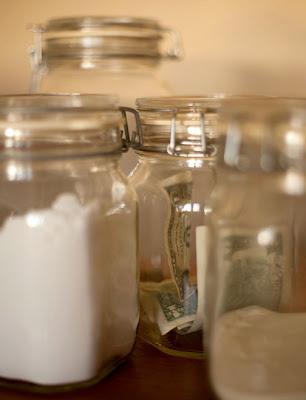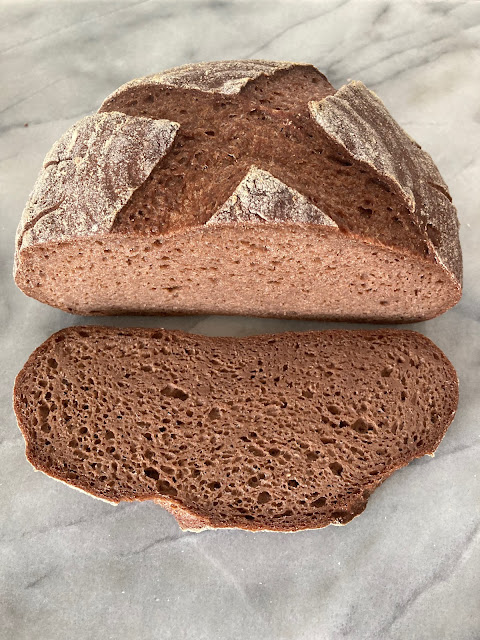How to Save Money on Food
For people just starting the gluten-free diet, there can be a lot to digest. Sometimes, the biggest shock to the system isn't about the food itself - it's about how much it costs. Here are some strategies for easing the blow to your wallet.
 Cut down on waste. A recent study found that Americans let 40% of their food go to waste - in spite of having almost universal access to the most advanced technology in quality control and refrigeration in the world. Have a plan for when you will eat everything perishable that you buy, and don't buy more than you can use.
Cut down on waste. A recent study found that Americans let 40% of their food go to waste - in spite of having almost universal access to the most advanced technology in quality control and refrigeration in the world. Have a plan for when you will eat everything perishable that you buy, and don't buy more than you can use.
Make what you have. If you find yourself running over budget in the week, try to see what you can make without going to the store. Don't have any meat in the house? Use eggs, tuna fish, peanut butter, nuts or beans for your protein instead. Necessity is the mother of invention, and you might end up creating a new recipe out of common ingredients that you can use again.
Drink only tap water. There are no nutrients that your body requires in liquid form. When people drink things other than water, it's just an easy way to deliver caffeine, sugar, or alcohol to their system. Need vitamin C? Eat an orange and get the benefit of the fruit's fiber. If this method of saving money seems too strenuous to your lifestyle, consider how much you could save by switching from coffee to tea, or by making all your caffeinated beverages yourself instead of going to the coffee shop.
Know your prices. Try to buy mostly things that you can get for less than $3 per pound. From cheapest to most expensive, this includes rice, eggs, many vegetables, and (sometimes) chicken, especially if you buy it whole. Supplement with more expensive items sparingly.
Serve smaller quantities. For pricier items like steak, lamb, and cheese, order smaller cuts or find smaller packages. A little bit of these items can go a long way. If you are eating more calories in a day than you need, consider your new-found frugality as another incentive to eat smaller portions overall.
Buy what's on sale. You don't necessarily have to go to the store with a set list of things to buy. See what is a good deal that week and take advantage of it. There are certain things you can stock up on when they are on sale and freeze, like butter and some meats.
Make your own breads and pastries. Find quick and easy recipes like my recipe for friands. Even though the recipe calls for almond flour which costs $9 per pound, the finished cakes cost less than 70 cents each - even if you use organic butter and eggs. That's a significant savings over something store-bought or from a bakery, and it doesn't even take much time.
Have a garden, or buy vegetables from a cooperative. You don't have to give up on organic foods to save money. My sister Rebecca has an article on the Green Baby Guide about how to save money on organic groceries.
Splurge on little things. Splurging may not seem like the best way to save money, but if you're like me being frugal can make you yearn for something decadent. Sometimes buying an exotic rice for two or three dollars per pound in order to have some variety can help your nutrition and your palate. Try to buy yourself a small treat on a regular basis so you can feel indulged. It's amazing how much of a treat it is to have a little bit of a high-end chocolate or cheese when you're budgeting everything else so tightly. If having your $3 chocolate bar prevents you from springing for that fancy $8 dessert, it's worth it.
 Cut down on waste. A recent study found that Americans let 40% of their food go to waste - in spite of having almost universal access to the most advanced technology in quality control and refrigeration in the world. Have a plan for when you will eat everything perishable that you buy, and don't buy more than you can use.
Cut down on waste. A recent study found that Americans let 40% of their food go to waste - in spite of having almost universal access to the most advanced technology in quality control and refrigeration in the world. Have a plan for when you will eat everything perishable that you buy, and don't buy more than you can use.Make what you have. If you find yourself running over budget in the week, try to see what you can make without going to the store. Don't have any meat in the house? Use eggs, tuna fish, peanut butter, nuts or beans for your protein instead. Necessity is the mother of invention, and you might end up creating a new recipe out of common ingredients that you can use again.
Drink only tap water. There are no nutrients that your body requires in liquid form. When people drink things other than water, it's just an easy way to deliver caffeine, sugar, or alcohol to their system. Need vitamin C? Eat an orange and get the benefit of the fruit's fiber. If this method of saving money seems too strenuous to your lifestyle, consider how much you could save by switching from coffee to tea, or by making all your caffeinated beverages yourself instead of going to the coffee shop.
Know your prices. Try to buy mostly things that you can get for less than $3 per pound. From cheapest to most expensive, this includes rice, eggs, many vegetables, and (sometimes) chicken, especially if you buy it whole. Supplement with more expensive items sparingly.
Serve smaller quantities. For pricier items like steak, lamb, and cheese, order smaller cuts or find smaller packages. A little bit of these items can go a long way. If you are eating more calories in a day than you need, consider your new-found frugality as another incentive to eat smaller portions overall.
Buy what's on sale. You don't necessarily have to go to the store with a set list of things to buy. See what is a good deal that week and take advantage of it. There are certain things you can stock up on when they are on sale and freeze, like butter and some meats.
Make your own breads and pastries. Find quick and easy recipes like my recipe for friands. Even though the recipe calls for almond flour which costs $9 per pound, the finished cakes cost less than 70 cents each - even if you use organic butter and eggs. That's a significant savings over something store-bought or from a bakery, and it doesn't even take much time.
Have a garden, or buy vegetables from a cooperative. You don't have to give up on organic foods to save money. My sister Rebecca has an article on the Green Baby Guide about how to save money on organic groceries.
Splurge on little things. Splurging may not seem like the best way to save money, but if you're like me being frugal can make you yearn for something decadent. Sometimes buying an exotic rice for two or three dollars per pound in order to have some variety can help your nutrition and your palate. Try to buy yourself a small treat on a regular basis so you can feel indulged. It's amazing how much of a treat it is to have a little bit of a high-end chocolate or cheese when you're budgeting everything else so tightly. If having your $3 chocolate bar prevents you from springing for that fancy $8 dessert, it's worth it.



Comments
MCB